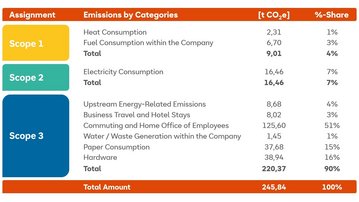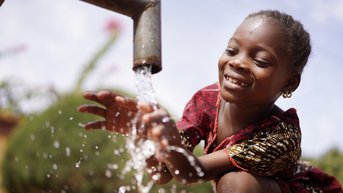
We want to take responsibility and make a social contribution to realising the sustainability goals of the United Nations and the goals of the Paris Climate Agreement.
We want to take responsibility and make a social contribution to realising the sustainability goals of the United Nations and the goals of the Paris Climate Agreement.

The global community has agreed that limiting global warming to below 1.5 degrees Celsius is essential to avoid catastrophic consequences. However, current commitments from individual countries are only sufficient to limit warming to a maximum of 4 degrees. To bridge this ambition gap, significant additional efforts from both businesses and individuals are required. At SRH Fernhochschule – The Distance Learning University, we recognize that voluntary emission reductions by companies are crucial for effectively combating climate change. Therefore, we have decided to reduce our CO2 emissions and neutralize unavoidable emissions, contributing to a sustainable future.
In 2023, SRH Fernhochschule – The Distance Learning University conducted its greenhouse gas inventory for the second time in collaboration with an independent external agency. The purpose of this assessment is to transparently represent the greenhouse gas emissions of our institution according to their sources. This forms the basis for the development and monitoring of our operational climate protection strategy. The present inventory identifies emissions directly associated with the value creation of our institution. It was prepared in accordance with the Greenhouse Gas Protocol Corporate Standard (GHG Protocol). Based on these results, we can implement targeted measures in the areas of climate protection and sustainability to reduce the environmental impact of SRH Fernhochschule.
The Greenhouse Gas Protocol (GHG) is the most widely used and recognized standard for accounting for corporate greenhouse gas emissions internationally. It was developed by the World Resources Institute (WRI) and the World Business Council for Sustainable Development (WBCSD). The GHG Protocol defines fundamental principles of relevance, completeness, consistency, transparency, and accuracy, drawing on principles of financial accounting.
Additionally, the Greenhouse Gas Protocol establishes rules for organizational and operational boundaries in greenhouse gas accounting. Of particular relevance here is the classification of emissions into three “Scopes”: Scope 1 includes all direct emissions from combustion in owned facilities, while Scope 2 covers emissions associated with purchased energy (e.g., electricity, district heating). Scope 3 encompasses emissions from services provided by third parties and purchased inputs.
As a result, for the reference year 2021, we identified a total emission of 246 tons of CO2 at our institution, which equates to 1.46 tons of CO2 per employee. This value is very low compared to industry standards. A key goal for the institution is to actively reduce our emissions further through specific measures in the area of ecology. The table below shows our emissions categorized and assigned to the respective Scopes.

We take responsibility for our unavoidable emissions and go beyond mere accounting by investing in specific offsetting projects to improve the climate.

We are currently supporting a well construction project in Rwanda that addresses international and social goals. The CO2balance project rehabilitates broken boreholes that are either too expensive or technically too complex for the local population to repair. The rehabilitated boreholes provide a source of safe and reliable water, saving approximately 10,000 tonnes of CO2e annually.

However, we are also involved “right on our doorstep” or regionally by supporting a mountain forest project in Baden-Baden. The mountain forest project has been working in the Baden-Baden municipal forest since 2014. The mountain forest project is working on forest reorganisation and is mainly planting fir trees under unstable old spruce stands. The capercaillie found at high altitudes is also supported through targeted biotope maintenance measures. The mountain forest project helps these animals to find an optimal habitat through suitable biotope design.

Since 2020, we have been certified as a climate-neutral university thanks to our specific measures to reduce greenhouse gas emissions and offset unavoidable emissions. As one of the few climate-neutral universities in Germany, we are thus assuming responsibility as part of our sustainability strategy and making a social contribution to the implementation of the United Nations' sustainability goals and the goals of the Paris Climate Agreement.
We operate in an environmentally friendly manner and produce comparatively very low greenhouse gas emissions. Through our comprehensive sustainability strategy, we consistently and actively implement measures to reduce emissions in the operation of the university. As part of our emission compensation efforts, we support social and ecological projects at both international and national levels. By actively reducing our greenhouse gas emissions and compensating for unavoidable emissions according to the highest standards, we fulfill our responsibility for climate protection.

Learn more about the goals and measures of our sustainability strategy. Our comprehensive institutional strategy encompasses social, environmental, and economic aspects.